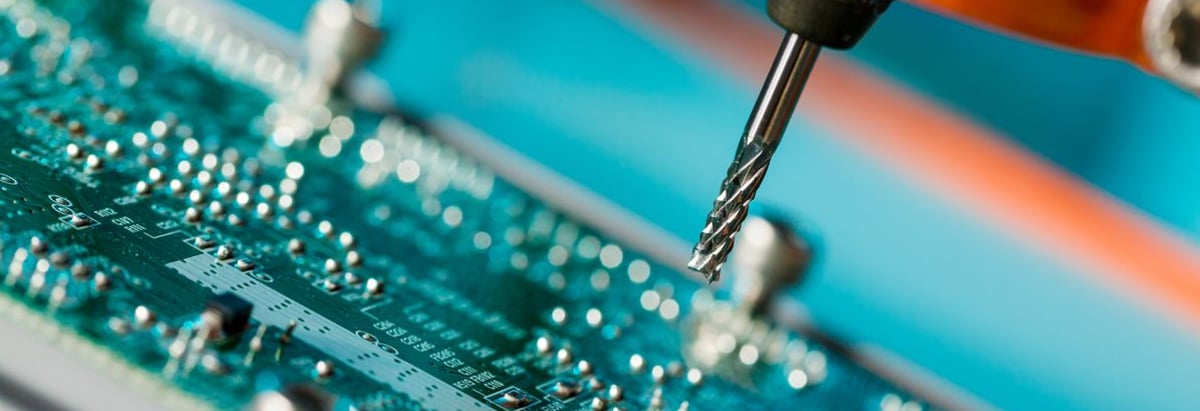Stock Analysis
- China
- /
- Semiconductors
- /
- SZSE:300623
We Think Jiangsu JieJie Microelectronics (SZSE:300623) Can Stay On Top Of Its Debt

Legendary fund manager Li Lu (who Charlie Munger backed) once said, 'The biggest investment risk is not the volatility of prices, but whether you will suffer a permanent loss of capital.' So it seems the smart money knows that debt - which is usually involved in bankruptcies - is a very important factor, when you assess how risky a company is. As with many other companies Jiangsu JieJie Microelectronics Co., Ltd. (SZSE:300623) makes use of debt. But is this debt a concern to shareholders?
Why Does Debt Bring Risk?
Debt is a tool to help businesses grow, but if a business is incapable of paying off its lenders, then it exists at their mercy. If things get really bad, the lenders can take control of the business. While that is not too common, we often do see indebted companies permanently diluting shareholders because lenders force them to raise capital at a distressed price. By replacing dilution, though, debt can be an extremely good tool for businesses that need capital to invest in growth at high rates of return. The first thing to do when considering how much debt a business uses is to look at its cash and debt together.
Check out our latest analysis for Jiangsu JieJie Microelectronics
How Much Debt Does Jiangsu JieJie Microelectronics Carry?
As you can see below, Jiangsu JieJie Microelectronics had CN¥2.04b of debt at June 2024, down from CN¥2.77b a year prior. On the flip side, it has CN¥727.8m in cash leading to net debt of about CN¥1.31b.
How Strong Is Jiangsu JieJie Microelectronics' Balance Sheet?
According to the last reported balance sheet, Jiangsu JieJie Microelectronics had liabilities of CN¥1.33b due within 12 months, and liabilities of CN¥1.83b due beyond 12 months. Offsetting this, it had CN¥727.8m in cash and CN¥916.2m in receivables that were due within 12 months. So its liabilities total CN¥1.52b more than the combination of its cash and short-term receivables.
Given Jiangsu JieJie Microelectronics has a market capitalization of CN¥30.9b, it's hard to believe these liabilities pose much threat. But there are sufficient liabilities that we would certainly recommend shareholders continue to monitor the balance sheet, going forward.
We measure a company's debt load relative to its earnings power by looking at its net debt divided by its earnings before interest, tax, depreciation, and amortization (EBITDA) and by calculating how easily its earnings before interest and tax (EBIT) cover its interest expense (interest cover). This way, we consider both the absolute quantum of the debt, as well as the interest rates paid on it.
We'd say that Jiangsu JieJie Microelectronics's moderate net debt to EBITDA ratio ( being 1.6), indicates prudence when it comes to debt. And its strong interest cover of 11.9 times, makes us even more comfortable. On top of that, Jiangsu JieJie Microelectronics grew its EBIT by 86% over the last twelve months, and that growth will make it easier to handle its debt. When analysing debt levels, the balance sheet is the obvious place to start. But ultimately the future profitability of the business will decide if Jiangsu JieJie Microelectronics can strengthen its balance sheet over time. So if you want to see what the professionals think, you might find this free report on analyst profit forecasts to be interesting.
Finally, a business needs free cash flow to pay off debt; accounting profits just don't cut it. So we clearly need to look at whether that EBIT is leading to corresponding free cash flow. During the last three years, Jiangsu JieJie Microelectronics burned a lot of cash. While investors are no doubt expecting a reversal of that situation in due course, it clearly does mean its use of debt is more risky.
Our View
Happily, Jiangsu JieJie Microelectronics's impressive EBIT growth rate implies it has the upper hand on its debt. But we must concede we find its conversion of EBIT to free cash flow has the opposite effect. Looking at all the aforementioned factors together, it strikes us that Jiangsu JieJie Microelectronics can handle its debt fairly comfortably. On the plus side, this leverage can boost shareholder returns, but the potential downside is more risk of loss, so it's worth monitoring the balance sheet. There's no doubt that we learn most about debt from the balance sheet. However, not all investment risk resides within the balance sheet - far from it. For instance, we've identified 2 warning signs for Jiangsu JieJie Microelectronics (1 doesn't sit too well with us) you should be aware of.
When all is said and done, sometimes its easier to focus on companies that don't even need debt. Readers can access a list of growth stocks with zero net debt 100% free, right now.
New: Manage All Your Stock Portfolios in One Place
We've created the ultimate portfolio companion for stock investors, and it's free.
• Connect an unlimited number of Portfolios and see your total in one currency
• Be alerted to new Warning Signs or Risks via email or mobile
• Track the Fair Value of your stocks
Have feedback on this article? Concerned about the content? Get in touch with us directly. Alternatively, email editorial-team (at) simplywallst.com.
This article by Simply Wall St is general in nature. We provide commentary based on historical data and analyst forecasts only using an unbiased methodology and our articles are not intended to be financial advice. It does not constitute a recommendation to buy or sell any stock, and does not take account of your objectives, or your financial situation. We aim to bring you long-term focused analysis driven by fundamental data. Note that our analysis may not factor in the latest price-sensitive company announcements or qualitative material. Simply Wall St has no position in any stocks mentioned.
About SZSE:300623
Jiangsu JieJie Microelectronics
Jiangsu JieJie Microelectronics Co., Ltd.

